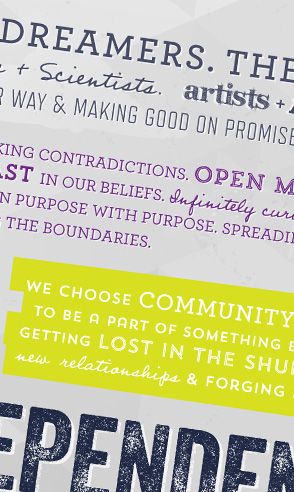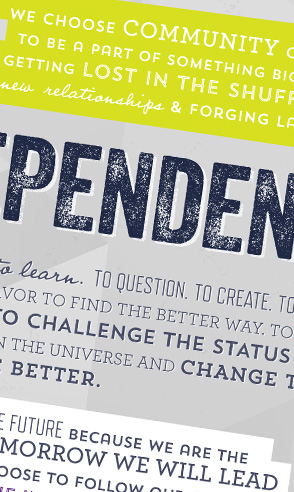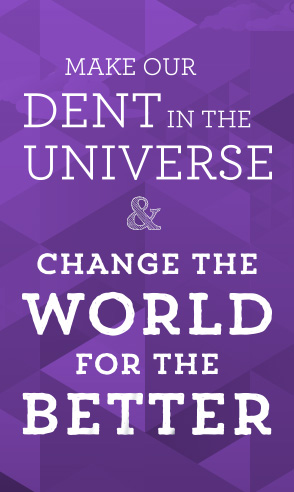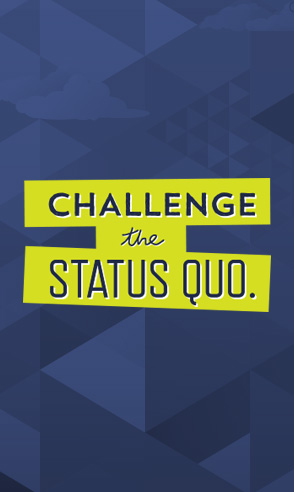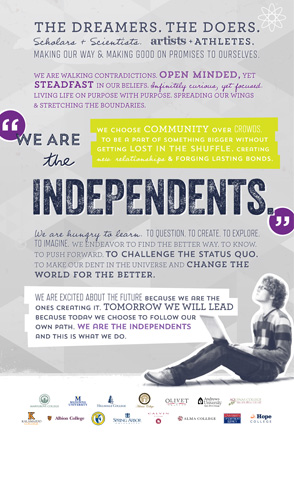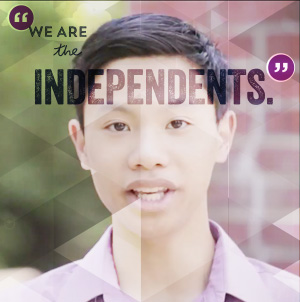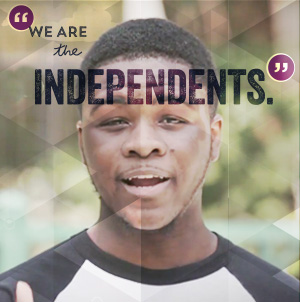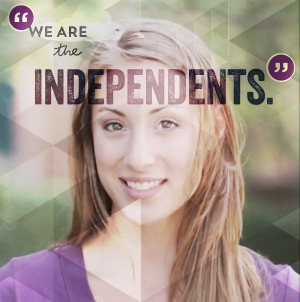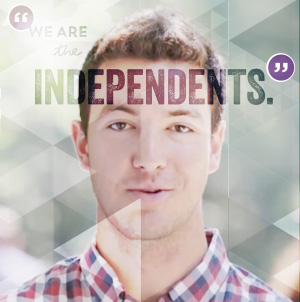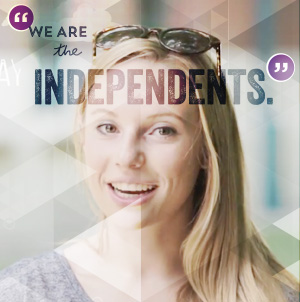Archive for February 2016
Aquinas Adds Translation Major to Meet Demands of Globalization
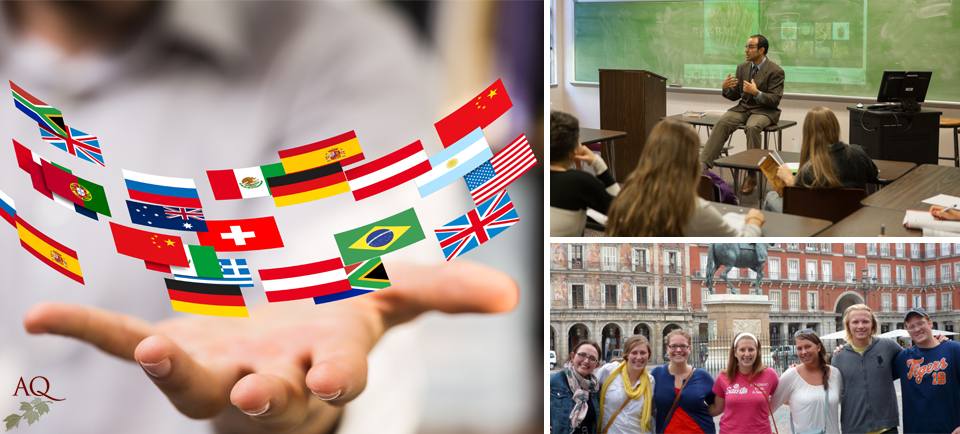
Le monde se rétrécit
That’s French, of course, for “the world is shrinking.” Or, as they say in German, “Die Welt schrumpft.”
No matter how you say it, globalization is changing how business is done — and how colleges prepare students for 21stcentury careers. Which is why Aquinas College this month announced it’s offering a bachelor of science degree in translation and interpretation this fall, making it the only college in Michigan with the program.
The program — which will be offered in Spanish, French and German — recognizes that business has taken an international flavor. Jobs for interpreters are expected to increase 29 percent over the next eight years, according to the Bureau of Labor Statistics. The government group says the growth is expected to be “much faster than average” for other fields.
“We want to give students degrees that are marketable and right now, the field of translation and interpretation is in high demand and the forecast is that this is going to be a continuing trend,” said Marcus Romero, an associate professor of Spanish at Aquinas.
“It really does open you up for a lot of possibilities. … There is a myriad of job opportunities translating and interpreting for social services, legal institutions, medical institutions.”
Aquinas’ program not only will teach language but also cultural knowledge and unspoken communication that is vital to understanding.
It’s no coincidence Aquinas is the first to offer the degree. Like Michigan’s other 15 top private colleges and universities, the college prides itself on being unique, agile and tailoring their offerings to students’ needs.
“As educators, it’s important for us to constantly evaluate the job landscape and provide degrees that are rooted in the liberal arts and needed in the workforce,” Romero said.
National leaders in education, the independents boast graduation and employment rates that often exceed big public schools. Classes are taught by award-winning faculty who are experts in their field. Because class sizes are so low, professors form tight bonds with students and help chart their paths.
Committed to community, the colleges have deep networks of business executives and alumni who mentor students.
Often less expensive than public schools, the independents offer a truly unique and affordable experience that simply doesn’t exist at big state schools.
Be bold. Be different. Go independent.
Hope College Fights for Flint, Seeks Answers

With crisis comes opportunity.
In the past month, the world has turned its sympathies to Flint, Michigan, whose drinking water supply was contaminated with lead. Thousands are sending bottled water to the industrial city, including students from Kalamazoo College and Calvin College.
Charity is wonderful. So are answers and understanding. In a quest for both, Hope College this month convened a public forum to discuss the heart-wrenching issue, bringing together faculty and students to discuss how the causes of the tragedy and ways to prevent another one.
It was led by Hope President John Knapp.
“We’ve examined problem from many perspectives, every one of those is important and more, to understand the nature of the problem,” he told the Holland Sentinel.
“Liberal arts college education is learning to think systemically and critically where problems can’t be understood through a single lens.”
Lead in drinking water can effect cognition and lead to future problems. Health officials also are investigating whether leaded water contributed to a spike in Legionnaire’s Disease that has killed nine people in Flint. Others have complained for years about rashes and other problems since Flint began using the Flint River for drinking water in 2014.
Hope’s symposium brought chemistry professors to discuss the science behind water testing, psychology professors to speak on the effects of lead poisoning and sociology professors to pontificate on how it could affect the community for years to come.
It also gave a forum to students with a personal connection to the crisis, such as Flint Township native Katlyn Koegel. Her grandparents live in Flint and she encouraged participants to visit the city.
So did Director of Multicultural Education Vanessa Greene, who has family in Flint.
“Their quest that we understand that they’re more than a single story,” Green said. “They want us to know that they’re bigger than the water crisis.”
It’s a tough issue and there aren’t easy answers. But the forum is a good example of what Hope College and Michigan’s private colleges and universities do best: Bring together experts and students with respect and search for answers.
It’s a trait that’s easier because the colleges pride themselves on not only top faculty but instilling a bond between professors and students.
Community isn’t just a buzzword at Michigan’s top 15 private colleges and universities. It’s a hallmark of what they do. Their faculty teach classes, rather than relying on grad students, and help students chart their own path.
Often less expensive than public institutions, the independents boast higher four-year graduation rates for a truly unique and affordable experience.
Be bold. Be different. Go independent.
Shot at Sit-Up World Record Brings Together Andrews University
There really is a world record for everything.
Largest biceps? Yep. Some guy from Egypt has 25-inch muscles.
The tallest dog? Everyone knows that’s Zeus, a Great Dane from Otsego, Michigan.
The most people doing sit-ups continuously? Alas, it’s still Hathershaw College in Manchester, England, despite last month’s valiant effort by Andrews University in Michigan.
On a cold January day, 520 hearty souls gathered in the university’s Johnson Gymnasium for their shot at immortality. They needed 504 to correctly do a sit up over the same minute.
That would put them one more than the Brits and enshrine them in the “Guinness Book of World Records.”
The police chief and undersheriff were there to make sure everything was on the up and up. Sanctioned as official witnesses for the famed Irish catalogue of superlatives, they counted heads and made sure everyone had their feet on floor, knees bent, torso and head flat and arms behind their heads or crossed over their chests.
There are protocols, after all. This is serious business.
The first attempt eliminated more than a dozen for bad form. Only 489 lasted 1 minute, 15 seconds.
They tried again. Seven more maintained the pace. That brought them to 496.
It wasn’t enough. They called it a day.
“Everyone tried,” University Health & Wellness Director Dominique Wakefield told the Herald Palladium newspaper.
“The point was to get people out and thinking about fitness.”
It fits right in line with Andrews University’s mission to Live Wholly – a foundational commitment to wellness that nurtures the Body, Mind & Spirit. Simply put, it reflects an understanding that education best succeeds if there is an equal emphasis placed on physical, mental and spiritual development.
Like Kanye West and Kelly Clarkston sang, though, what doesn’t kill you makes you stronger. So Andrews will try again this spring — when the weather is warmer and the fire still burns.
“I hope people walked away feeling good about taking part in a community event,” Wakefield said.
Is it a little silly? Of course. But it was also great fun, raised awareness of fitness — and helped foster a spirit of cohesion and togetherness on a cold winter day.
That spirit of community is vital to Andrews University and Michigan’s top private colleges and universities.
Intentionally different than big state schools, the colleges take pride in the fact that students forge tight bonds with each other and faculty members.
At huge public schools, it’s easy to be just another face in the crowd. At Andrews and the independents, students are part of something bigger, a unique community that shares traditions and special events they’ll remember for a lifetime.
Professors pride themselves on working closely with students to help them forge their own path, buck conventional wisdom and find a new way.
It’s an experience that simply isn’t available at traditional universities. And despite what you may have heard, independents are often less expensive and boast higher four-year graduation rates than four-year institutions.
Be bold. Be different. Go independent.
Michigan Private Colleges Rank High in Social Mobility
Study after study has shown that college not only transforms minds, but it lives as well as wallets.
College graduates make 25 percent more per week than the national average, and unemployment rates are significantly lower the more education is attained, according to the Bureau of Labor Statistics.
In short, college is “a ticket to the middle class,” according to Bridge Magazine.
But getting admitted to one and finishing are two different things, and it’s no secret that some colleges do far better jobs of helping low-income students graduate and get jobs.
The online magazine analyzed federal data to rank colleges on how they promote social mobility — offering tuition breaks, mentors and other aid for low-income students, as well as how long it took them to narrow the income gap with rich students after graduation.
The results? Michigan’s small, private colleges ranked the near the top.
Adrian College was the top-ranked private college in the state, enrolling the seventh-highest percentage of low-income students and graduating nearly 60 percent of them.
Madonna University was not far behind, offering low tuition for low-income students (less than $9,000) and helping them make similar salaries with high-income students 10 years after enrollment.
Olivet College and Spring Arbor University were near the tops in enrolling poor students, while Alma College, Hope College and Calvin College ranked in the top six in graduation rates.
Kalamazoo College, inexplicably, was left out of Bridge’s analysis altogether. But using its metrics, would have scored in the top 10 for graduation rates and average earnings.
The rankings reflect a deep commitment by Michigan’s top 15 private colleges and universities to improving the lives of all students and offering a path to improve lives.
Contrary to popular belief, tuition is on par with many public universities. That’s because students receive far more financial aid. At most of our schools, more than 93 percent receive aid, bringing the cost of a world-class education within reach.
Students at Michigan’s independents typically graduate in four years, rather than five or six at public schools. That means they are earning a salary while their peers at big state universities are wracking up more student debt.
That also means they have a two-year head start on their careers, which is yet another way Michigan independents help students forge their own path.
Be bold. Be different. Go independent.


